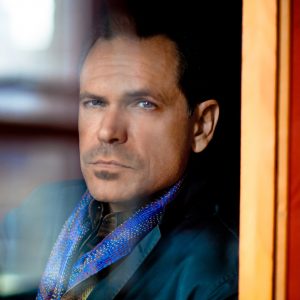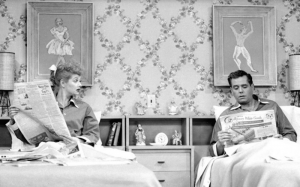Kurt Elling, ‘Practical Arrangement’
Sting, ‘Practical Arrangement’
 So I’m listening to Kurt Elling’s “Upward Spiral”, a collaboration with the quartet of saxophonist Branford Marsalis, and the fourth track there stops me in my tracks. “Practical Arrangement”, a painfully slow, painfully needy, almost spoken monolog by a man proposing to a woman that she marry him, live with him, even though they both know she doesn’t love him. A practical arrangement. Gee, love songs ain’t what they used to be.
So I’m listening to Kurt Elling’s “Upward Spiral”, a collaboration with the quartet of saxophonist Branford Marsalis, and the fourth track there stops me in my tracks. “Practical Arrangement”, a painfully slow, painfully needy, almost spoken monolog by a man proposing to a woman that she marry him, live with him, even though they both know she doesn’t love him. A practical arrangement. Gee, love songs ain’t what they used to be.
The song rivets me. I stop in my tracks and listen to every word, even though it’s so slow that it seems to stand still–a guy struggling to get out some very difficult words, trying to maintain his poise using the façade of an objectified, logical, contractual proposal. We understand that he’s actually bereft of all dignity, begging, offering her his all in return for virtually nothing.
 This is new for me. Well, new and familiar. I’m fascinated by the new varieties of couplehood that have been evolving in Western society since I was a kid. I remember when Lucy and Desi slept in separate beds. I was in college when I first met a couple living together openly outside the sanctity of marriage. And now I watch a lot of Scandinavian television, where couplehood takes on more fluidity, more new preconceptions and expectations and expressions than dreamt of in my philosophy.
This is new for me. Well, new and familiar. I’m fascinated by the new varieties of couplehood that have been evolving in Western society since I was a kid. I remember when Lucy and Desi slept in separate beds. I was in college when I first met a couple living together openly outside the sanctity of marriage. And now I watch a lot of Scandinavian television, where couplehood takes on more fluidity, more new preconceptions and expectations and expressions than dreamt of in my philosophy.
 But a man (or woman) openly offering everything in return for nothing? We all know that extreme brand of desperate, unrequited need that trumps all propriety and sends our super-ego negotiating team into a tizzy.
But a man (or woman) openly offering everything in return for nothing? We all know that extreme brand of desperate, unrequited need that trumps all propriety and sends our super-ego negotiating team into a tizzy.
A practical arrangement. A proposition with sex off the table, a proposal with love outside the deal. Wow. That’s new. Let me chew on that.
This song—it’s hardly a song. It has less forward movement than a Gregorian chant. There’s almost no melody, little more than the rise and fall of the spoken word. The word choice is NON-poetic (Am I asking for the moon? Is it really so implausible?/That you and I could soon come to some kind of arrangement?/I’m not asking for the moon, I’ve always been a realist,/When it’s really nothing more than a simple rearrangement.)
(Am I asking for the moon? Is it really so implausible?/That you and I could soon come to some kind of arrangement?/I’m not asking for the moon, I’ve always been a realist,/When it’s really nothing more than a simple rearrangement.)
Who wrote this calculated, conversational negotiation?
Gulp. Sting. On that 2013 album of songs he wrote for a musical, “The Last Ship”.
Like many others, I stopped following closely Sting’s uneven, late career a long time ago. His previous album of original material was in 2003. “I thought: Maybe I’ve lost my mojo to write. There’s a lot of self-obsession involved in being a singer-songwriter. I’d gotten sick of navel-gazing. I’d gotten sick of putting myself on the couch.”
 After a hiatus of ten years, Sting rediscovered his mojo, writing a series of sea shanties in a Newcastle accent, vignettes of a gallery of local Northern characters in the small shipbuilding town where he was raised (‘The Night the Pugilist Learned How to Dance’). “Once I came up with these characters, the songs began to pour out. It was such a relief not to write about myself. I had to get myself out of the way.”
After a hiatus of ten years, Sting rediscovered his mojo, writing a series of sea shanties in a Newcastle accent, vignettes of a gallery of local Northern characters in the small shipbuilding town where he was raised (‘The Night the Pugilist Learned How to Dance’). “Once I came up with these characters, the songs began to pour out. It was such a relief not to write about myself. I had to get myself out of the way.”
The songs are impressively crafted, I said after one listening, knowing I’d probably never go back to listen again.
It’s not happenstance that I’ve never written about Sting. I’d hardly know what to say. One moment you feel like he’s standing between Stevie Wonder and Paul Simon as one of the most talented musicians of our generation; the next, you’re just a little embarrassed by his self-conscious displays of earnestness, the pretence outweighing the presence (the presents?). You know he knows exactly where the cameras are positioned.
 I read that ‘Practical Arrangement’ is an outtake from the musical, appearing on the album but not on stage. Okay. Maybe that’s a good sign?
I read that ‘Practical Arrangement’ is an outtake from the musical, appearing on the album but not on stage. Okay. Maybe that’s a good sign?
I have a bias, acquired during my formative years from Andrew Sarris’s book “The American Cinema: Directors and Directions 1929–1968 (1968)”, an adherence to his ‘auteur’ theory, derived from the French Nouvelle Vague film critics and directors. It refers to the artist who controls all aspects of a collaborative creative work. In film, it can be a star (if the movie is a vehicle), the head of the studio (if it’s an industry-generated flick), or a writer (if it’s a faithful adaptation of a play or novel). But if it’s true cinema, the auteur, the real creative mind, is the director. Film is a director’s medium. Think Alfred Hitchcock.
The term has gained a lot of currency in a wide range of fields. In music, it has been used to refer to a producer (think Phil Spector or Berry Gordy). I’m told that it can even refer to video games today, such as Hideo Kojima, the creator of the “Metal Gear” series. I’m hoping that you understand that that particular insight is based on hearsay.
 In music, this leads me to think a lot about the composer/performer dichotomy. Who is the creative artist here? In classical music, you gotta go for the composer, no matter what. Even if it’s Leonard Bernstein conducting Isaac Stern soloing with the New York Philharmonic in Beethoven’s “Violin Concerto in D Major op 61”– it’s Ludwig’s gig.
In music, this leads me to think a lot about the composer/performer dichotomy. Who is the creative artist here? In classical music, you gotta go for the composer, no matter what. Even if it’s Leonard Bernstein conducting Isaac Stern soloing with the New York Philharmonic in Beethoven’s “Violin Concerto in D Major op 61”– it’s Ludwig’s gig.
Frank Zappa’s ‘Louie, Louie’ notwithstanding, I adhere to that auteur business pretty stringently. My gut always tells me that by default, the writer is the creator. The performer is a tool.
So when it comes to Kurt Elling singing a song written and originally performed by Sting, I’m a bit befuddled. Even his harshest critics have to admit that Sting ain’t Richard Berry. Let’s give a listen. First, the original:
Yeah, it’s interesting. New, surprising. All those nice things I said above. But there’s also something cloying in the self-conscious earnestness of the presentation.
Then you listen to Kurt Elling’s version:
What’s the difference? Same melody, very minor (but crucial) changes in the lyrics, same harmonics, same key (Bm). Same story. But it isn’t.
 Kurt’s last ‘but I think you could learn to love me given time’ (the ‘I think’ is Kurt’s interpolation; his insecurity is so much more convincing than Sting’s self-confidence) – is he just walking through the song, saying to himself, “Ok, here comes the last line, let’s really milk it” while in the back of his mind all he’s really thinking about is the pepperoni pizza with extra cheese waiting for him in the dressing room?
Kurt’s last ‘but I think you could learn to love me given time’ (the ‘I think’ is Kurt’s interpolation; his insecurity is so much more convincing than Sting’s self-confidence) – is he just walking through the song, saying to himself, “Ok, here comes the last line, let’s really milk it” while in the back of his mind all he’s really thinking about is the pepperoni pizza with extra cheese waiting for him in the dressing room?
Or is he living the moment, animating in his mind (and in ours) the loneliness in the narrator’s life, the desperation in his need to try to cajole her to begrudge him the merest modicum of warmth?
I can hear one lobe of Kurt’s brain saying, “You can’t perform it that slowly, man. The audience will either fall asleep or walk out.” But thankfully, that other lobe holds sway: “If I sing it with utter conviction, they’ll listen.”
And sing it with breathtaking passion and conviction, Kurt does. Because even though he’s just a singer, he’s a consummate artist. An auteur.
Am I asking for the moon? Is it really so implausible?
That you and I could soon come to some kind of arrangement?
I’m not asking for the moon, I’ve always been a realist,
When it’s really nothing more than a simple rearrangement.
With one roof above our heads, a warm house to return to,
We could start with separate beds, I could sleep alone – or learn to.
I’m not suggesting that we’d find some earthly paradise forever,
I mean how often does that happen now? The answer’s probably never.
But we could come to an arrangement, a practical arrangement,
And [perhaps] you could learn to love me given time.
I’m not promising the moon, I’m not promising a rainbow,
Just a practical solution to a solitary life.
I’d be a father to your boy, a shoulder you could lean on,
How bad could it be, to be my wife?
With one roof above our heads, a warm house to return to,
You wouldn’t have to cook for me, you wouldn’t have to learn to,
I’m not suggesting that this proposition here could last forever,
I’ve no intention of deceiving you, you’re far too clever.
But we could come to an arrangement, a practical arrangement,
And perhaps you’d [you could] learn to love me given time.
It may not be the romance that you had in mind,
But [I think] you could learn to love me given time.
If you enjoyed this post, you may also like:
178: The Claudia Quintet +1 feat. Kurt Elling, ‘Showtime’ (“What is the Beautiful?”)





First off, I have a fundamental issue with any red-blooded female who has to be coaxed or cajoled to fall for the very dishy Mr. Elling! That being said, I’m struck by the whole performance. The beautiful playing from Branford Marsalis and the rest of the musicians provide the kind of support Elling needs to confidently “sing with utter conviction.” He seems to approach everything he does that way. The more I hear, the bigger fan I become. Thank you for sharing.
Great piece Jeff, thanks for sharing! Never heard of Kurt Elling before, I think I like him, sounds like he projected himself straight from the 1950s.. anyway this is definitely one of those (rare) cases where I prefer a “cover” performance over the original.
I heard them perform this in Chicago’s Orchestra Hall. The audience was spellbound and utterly silent for the entire–what–9 minutes? I could not believe my ears–even as a longtime Elling listener I had never heard him do anything like this. I was elated to find it online, shocked it’s by Sting (I too have Sting Issues), greatly prefer the Elling/Marsalis version, and listen to it entirely too often. It never gets old. Thanks for the extended look at the piece.
Thanks, Julie.
My son treated me to a Branford Marsalis/Kurt Elling concert in the Amsterdam Concertgebouw last Friday. Didn’t know exactly what to expect, know BS mainly from his fantastic contributions to the Nothing like the Sun album. And yes, I do like Sting!
But what happened is almost exactly as you describe it here above. One song in particular blew my mind – didn’t know then it was called ” A practical arrangement” nor that it was written by Sting – and I spent part of my Saturday researching what it was. This is how I stumbled on to your website and that cost me almost the whole rest of my weekend. Can’t say I have yet read all your posts, but is has been a tremendous experience and often a trip down memory lane, to read your very well written and insightful comments. Not to mention listening to all the music and looking at the video’ you have included links to. Many, many thanks.
And one request. You say somewhere you have missed out on most of the seventies music and certainly the harder rock stuff. But as you appreciate emotion and skill, give one very unlikely band a try. Led Zeppelin and Since I have been loving you from the third album. A song I can’t listen to without my eyes getting wet. Great guitars and singing, understated but hugely effective drumming and gorgeous organ and arrangement, with a build up and climax quite inconceivable for guys being in their early twenties then. Looking forward to your comments!
Thanks so much, Jan!
I can’t think of a better way of getting discovered than that.
So what did you think of Sting’s version? And BTW, I Kurt had kind words to say about the posting.
Will I give Zed Leppelin a chance? It’s rare that I don’t follow up a lead. But I have to admit I enjoy my prejudice more when it’s unfounded. Makes it sweeter, somehow. I like to brag that I’ve never seen the movie The Sound of Music.
I will promise to check out the song, though. As soon as I can stop listening to Boz Scaggs!
Found your site accidentally, and I’m delighted to find it’s devoted to introspective examination of music from all genres. Totally disagree with your observations on this particular song. I love the arrangement, but not because of Kurt, whose voice i would put alongside Rufus Wainright’s…..a little nasally, too much showtune quality. But definitely pleasant to listen too sometimes. Why do people, especially men, have a problem with Sting? He’s a consummate artist…it flows through every lyric, every musical phrasing. Steeped in emotion, his voice captures that bit of desperation an older man would have in trying to find someone to help him with his loneliness. How did you hear self confidence? But thx for having opinions about the music you’re listening to.
And if you can’t get into Led Zeppelin, try Robert Plante’s 29 Palms. Last listened to it travelling to the city of 29 Palms in California. Music invading one’s life.
This is an exceptionally great analysis about what makes a performance an actual piece of art. Couldn’t agree more with every single word, even though I like Sting, while being aware of all “issues” you pointed and implied. I liked the original version of his, it’s “nice”, then Spotify suggested me Kurt’s – whom I somewhat already knew and admire for his work with Yellowjackets. After hearing his version, I was paralyzed and thought, oh, poor Sting, his performance is just annulled…
Great that you could put in words why is that, I just felt it instinctively. Thanks for the post.
Thanks, Bea.
For all those people who say “It’s a matter of taste”– this makes one think that there’s something empirically better about one performance over another.
This is an old posting I know but you might be interested to hear the Anne Sohie Mutter & Brooklyn Rider version which came out the same year i think… caught my ear too…. https://open.spotify.com/track/5geX8o9yB1JI4y3JkkoPXy?si=CgvhGKD4TnSomLic87V6_A
“Who wrote this calculated, conversational negotiation? Gulp. Sting. ”
Or was it Gordon Sumner / Robert Mathers?
Has it really been almost four years since Kurt Elling captured me with this?
A lot has changed for me in that time, but not my utter admiration for his talent and taste.
That just seems to grow.
Hoping I might have the good fortune to hear him sing in person one fine day.
There is an even more stunning version of this (in my opinion) sung by Anne Sophie Von Otter with a pared down arrangement for string quartet. Absolutely haunting.